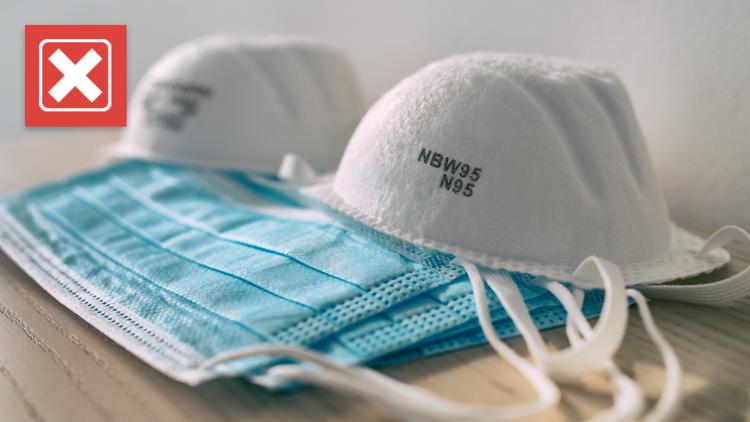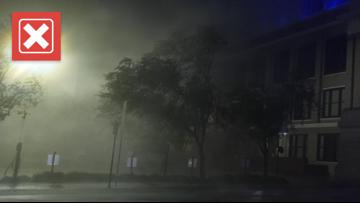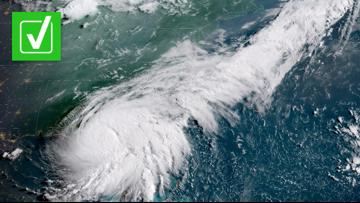On Sunday, Sept. 29, a chemical plant fire sent a massive plume of orange and black smoke into the sky in Conyers, Georgia, about 25 miles southeast of Atlanta.
Since then, many residents in the area have complained about a strong smell of chlorine in the air and a haze for many miles around the BioLab plant. BioLab makes pool and spa treatment products.
The U.S. Environmental Protection Agency (EPA) says it has detected “chlorine and related compounds” in the air near the plant. Atlanta’s fire department also says it is testing for the presence of chemicals in the area, including chlorine, hydrogen sulfide and carbon monoxide.
Rockdale County officials are urging residents nearby to stay indoors with the windows closed and air conditioning turned off. Some VERIFY readers have asked if wearing a mask, like those that help protect against the spread of COVID-19, would help protect them.
THE QUESTION
Will wearing a mask used for COVID-19 protect you from chlorine in the air?
THE SOURCES
- Centers for Disease Control and Prevention
- U.S. Environmental Protection Agency
- U.S. Department of Homeland Security
- California Department of Public Health
- 3M
- Jeremy Sarnat, Ph.D., an associate professor of environmental health at Emory University’s Rollins School of Public Health and member of a scientific committee that advises the EPA
- Erik Johnson, application engineer and technical service specialist in 3M’s Personal Safety Division
THE ANSWER
No, wearing a mask used for COVID-19 will not protect you from chlorine in the air.
WHAT WE FOUND
Surgical masks and N95 respirators were recommended during the COVID-19 pandemic because they can help prevent people from breathing in microscopic virus particles. But all of our sources agree that wearing that kind of mask will offer little protection against chlorine in the air.
Chlorine is a liquid or gas with a strong, irritating smell that can cause health issues if high amounts are breathed in, according to the Centers for Disease Control and Prevention (CDC).
“If chlorine is in the air, people can be exposed through skin or eye contact, or breathing in the chlorine gas,” the CDC says. “Because chlorine gas is heavier than air, it will sink to lower areas and increase the risk of exposure there.”
The CDC says that particulate respirators, like N95 masks, “do not protect against chemicals, gases, or vapors, and are intended only for low hazard levels.”
Jeremy Sarnat, Ph.D., an associate professor of environmental health at Emory University’s Rollins School of Public Health, told The Atlanta Journal-Constitution that the gas molecules and particles that may form from reactions with the gases are small and easily penetrate masks worn to prevent the spread of COVID-19.
“Gases and vapors are not filtered by particulate respirators,” Erik Johnson, application engineer and technical service specialist in 3M’s Personal Safety Division, told VERIFY.
If you’re exposed to chlorine in the air, mask manufacturer 3M recommends wearing a heavy-duty mask, like a full facepiece respirator. But these masks are typically only used in industrial or occupational exposure settings and often aren’t available for use by the general public.
“Depending on the levels of acid gases in the air, workers who are trained and fit tested on full facepiece respirators may be able to use cartridges approved for acid gases,” Johnson said. “Workers exposed to higher levels of acid gases may need more protective types of both skin and respiratory protection.”
On Sept. 30, the Georgia Environmental Protection Division and the U.S. Environmental Protection Agency (EPA) said in a joint statement that the chlorine levels currently detected in the air in Conyers aren’t high enough to cause harm to most people. But people with preexisting conditions who have severe symptoms should seek emergency care.
The Associated Press contributed to this report.











